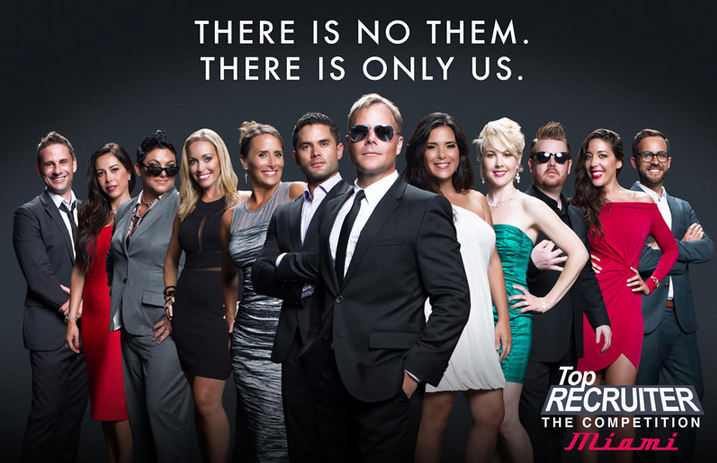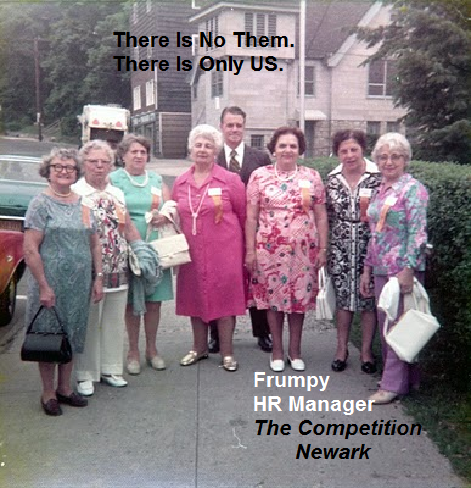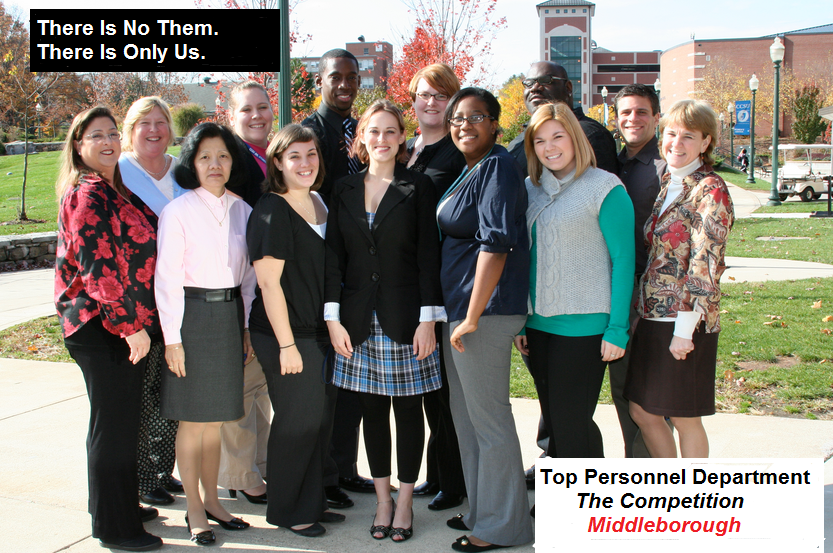Originally posted on Fistful of Talent back in April 2011. Maureen Sharib reminded me of this on Twitter and I wanted to share. Enjoy.
I don’t get it – I don’t get why somehow over the past 5 years it’s not alright to be called a “Recruiter.”
Okay, let me back up a bit. I’m sick of hearing about “Sourcers”! You know what a Sourcer is? It’s someone who can’t close a candidate. In the beginning, recruiters had to do it all – put together the JD, come up with a marketing plan (oh, I’m sorry we call that “sourcing plan” now), go out and actually find the candidates (oh, my bad again “go out and source”) and then we had to actually call up the candidate and see if they were someone we had interest in moving forward into the process.
Look, I’ve seen the recruiting desk cut up more ways than a mom trying to be creative with a PB&J in May, after making 180 PB&J’s throughout the year (parents making their kids lunch each day get this reference, others won’t!). I get that it can be more “efficient” to separate out “Sourcing” and “Recruiting.” I read 7 Habits, you didn’t discover something new, companies have been cutting up the recruiting desk for decades. In 1993, I was hired into staffing to be a “Research Assistant”. Guess what that was? Yeah, some idiot who didn’t know how to close (yet) but could go out and find potential interested candidates (by any means necessary) to give to the “real” recruiter who could close them on a position.
So, here’s the rub, right? Who’s better, Sourcers or Recruiters? I’m guessing in most organizations using this model, they are selling it as if they are equal, which blows all of your efficiency right off the bat. They aren’t equal, one is collecting shells on a beach and one is polishing shells and telling sucker tourists how rare and valuable they are to make a buck and keep the lights on. If the shell picker-upper went away, would the shell polisher/seller go out of business? Hell no, they’d take their butt over to the beach, pick up some shells, take them back to the shop, polish them up and sell them. Would they be as successful? No, but it’s all relative since they also wouldn’t be paying the overhead of Mr. Picker-upper.
I actually like the Sourcing and Recruiting dual model in shops that have that kind of volume, it makes sense. Someone who is exceptional at sourcing combined with someone who is fantastic at recruiting will place more great talent than 3 people all doing it on their own. But let’s not start handing out trophies to the Sourcer. I can train anyone to source. I’ve failed many times at training someone to close. One of those skills is transactional. One is transformational.
There are a number of companies right now in India that for pennies on the dollar will source candidates for you, and they’ll do it better than Steve who is sitting on Facebook right now “building his Talent Community”. It’s transactional. It’s a process. it can be outsourced without a slightest blip to your recruiting function.
And okay, haters, before you go all crazy in the comments, let me say this, I think the sourcing technology, tools, etc. are all great. I love reading and trying out the techniques that are shared constantly by FOT’s own Kelly Dingee, or others like Glen Cathey, Amybeth Hale, Maureen Sharib, Jim Stroud, etc. (it’s amazing industry changing stuff). I don’t hate sourcing. In the right organization it makes perfect sense, but be careful. What I find is that many organizations want to move their best sourcers to recruiting and they fail because it’s two different skill sets. Don’t make that mistake.
So, where did all the recruiters go? The fakers – the ones who don’t want to pick up a phone – want to call themselves Sourcers. Why? Because the accountability of finding someone vs. closing someone – is on two different levels. I can find who is the top developer at a company, but it’s a different story in talking that developer into why they need to join my organization. The recruiters are still there – just look for the ones with the phone to their ear.




